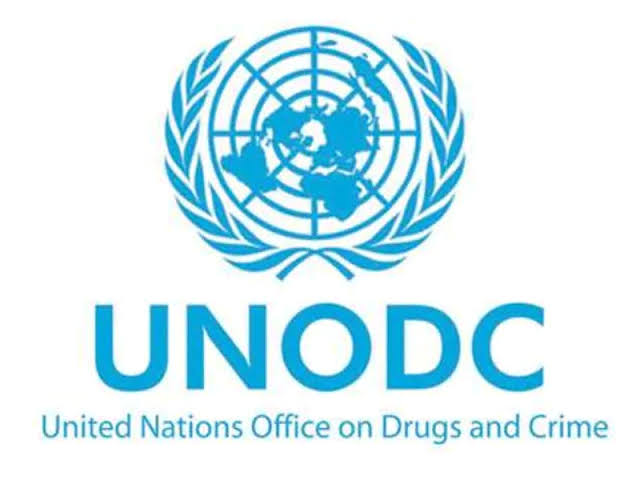UNODC unveils states where smuggling of persons rampant
- September 25, 2022
- 0
Stories by Rahman Ismail Sequel to the Survey carried out by the United Nations Office on Drugs and Crime, UNODC between 2019 – 2021, there were relatively

Stories by Rahman Ismail
Sequel to the Survey carried out by the United Nations Office on Drugs and Crime, UNODC between 2019 – 2021, there were relatively higher numbers of people from the South – South with high rate of migrants to Europe.
The research, ‘Observatory on Smuggling of Migrants in Nigeria’, also revealed that higher numbers of Nigerians from Northeast (Borno, Adamawa and Gombe were involved in irregular migration in the year under review.
The Survey which was carried out in three phases pointed out that, ‘there is evidence of Nigerians as young as 8 and as old as 63 were being smuggled through irregular migration”, Three separate phases of field research on migrant Smuggling of Nigerians were carried out for the analysis.
Phase 1 which was conducted in November 2019 revealed that 76 qualitative in-depth interviews were carried out with key informants (Law enforcement, civil society organizations, immigration officers and community policing units) and returned Nigerian Migrants.
Phase 2 of the field research comprised interviews with 84 key informants (33 women and 52 men) and 38 Nigerians who were returned or intending Migrants (22 women and 16 men), conducted in the eight Nigerian States of Adamawa, Cross River, Delta, Edo, Enugu, FCT (ABUJA), Kano and Osun during the period April to July 2021, in the framework of the UNODC Nigeria Transnational Organized Crime Threat Assessment.
According to the report, the majority of Nigerians surveyed in Phase 3 were young adults, with the average age of 29 years old. 51% were men and 49% were women, which reflects additional efforts in the sampling strategy to survey women and understand their experiences better, rather than reflecting the gender composition of Nigerians on the move in general.
Speaking at the lunching of the report, ‘Observatory on Smuggling of Migrants in Nigeria’ recently at the Nigeria Immigration Service headquarters in Abuja, Minister of Interior, Rauf Aregbesola who was represented by a Deputy Director in the Ministry, Mrs. Atinuke Ajiboye said that, the challenges of illegal migration in Nigeria is becoming endemic in society because of economy hardship which was as a result of changes in communual style of living.
Aregbesola said that, ‘Ministry of Interior was impressed with this laudable project and definitely the channel of erosion, the Community, Villages, Homes, Mosques, Churches and the same we hope that this Observatory project actual information will sensitise and make the Community and Society aware that there is no gain in been smuggled and going through all of these pains and sometimes pay the ultimate price by loosing their lives’.
The research was however carried out in the framework of the UNODC Observatory on Smuggling of Migrants, in partnership with the Nigeria Immigration Service (NIS), National Agency for the Prohibition of Trafficking in Persons, NAPTIP among other stakeholders
On his part, the Comptroller GeneraI of Immigration, Idris Jere who was represented by DCG IAM Haliru said the Service will work on the Survey as well as implementing to the letters the recommendation therein.
“It’s important to note that Nigeria Immigration Service according to his mandate responsibility to fight smuggling migrant, smuggling will continue effectively with all critical stakeholders and development partners, Senior officers and Men of Nigeria Immigration Service should put in commitment in the fight against SOM,’ Jere said.
Also speaking, the Country Representative of UNODC, Dr. Oliver Stolpe, said, the results of the Survey showed that the migrant from Nigeria were in 3 phases due to the launching of their website in the year 2021.
“With the objective of providing actual data analysis online for Government and critical Stakeholders to involve on phenomenon of migrant across Federal Agencies’, Stolpe noted.
UNODC, the leadership and staff of Nigeria Immigration Service, Canada, France and other partners jointly carried out the research in some selected States of the Federation.
Comparatively, few of the Nigerians surveyed in transit and destination countries in 2021, who had used a smuggler or facilitator considered that actor to be a criminal 18%.
In fact, most saw them as a service provider or business person is 50%, an information resource is 24% or a protection resource is 17%, while 15% saw them as a fellow migrant and 3% as a friend,” UNODC said.
According to a law enforcement officer interviewed in Lagos in 2019, “The most popular mechanism for operating along relevant routes by the smugglers is simply through deceitful packages.”
The survey made it known that, seven out of ten Nigerians surveyed strongly agree or agree that the smuggler or facilitator helped them to achieve their migration goal, with just 13% strongly disagreeing or disagreeing with this statement.
UNODC added that another man interviewed in Delta State in 2021 had be to “buy his freedom” when he sold to a fellow Nigerian man in Libya by the smuggler who brought him from Agadez, Niger.
The smuggler claimed that he had not been paid by the man’s burger (local agent), the interviewee’s mother transfered N170,000 ($409) to the buyer’s account in Nigeria to secure her son’s release, but all in abortive.
Meanwhile, according to sections 64-101 of the Nigerian Immigration Act (Act No. 8 of 2015, domesticate the relevant provisions of the UN Smuggling of Migrants Protocol.
“The Act criminalizes Smuggling of Migrants (Part X) and offences in connection with Smuggling of Migrants (Part XI), establishes a directorate in charge of prohibiting the Smuggling of Migrants, provides for restitution for smuggled persons (Part XII), and covers Migrants civil remedies (Part XIV).
UNODC said, that the majority had been living in urban areas (76%) prior to emigrating. The socioeconomic profile shows that most of those surveyed had at least secondary education (71%), with only 7% not having completed any schooling, but just 6% with a university degree.